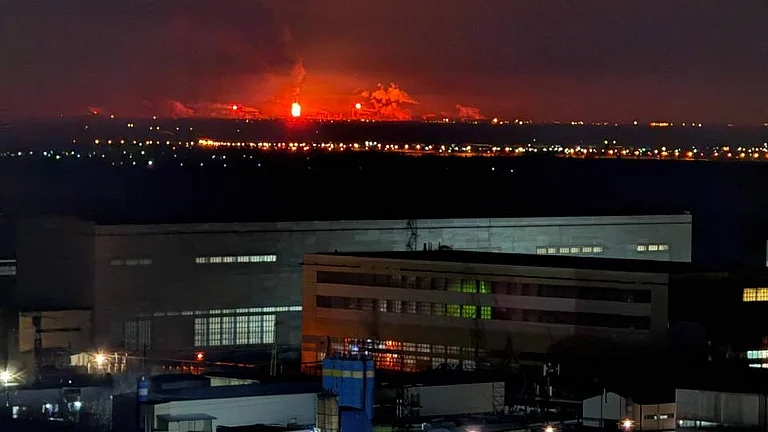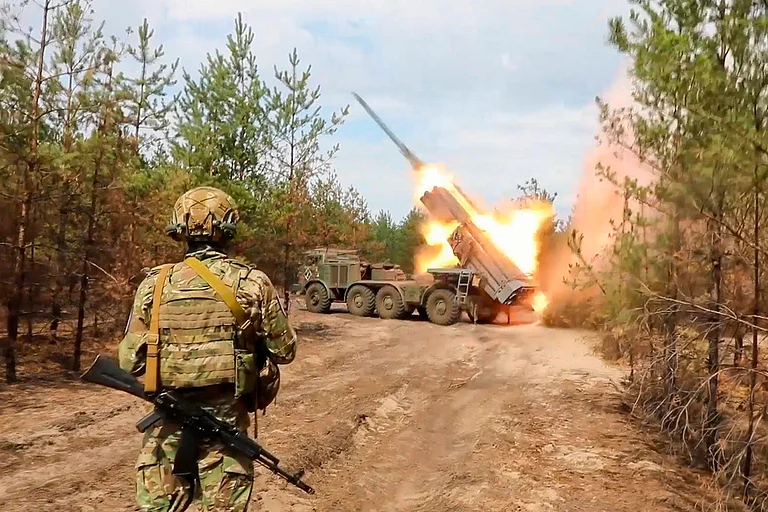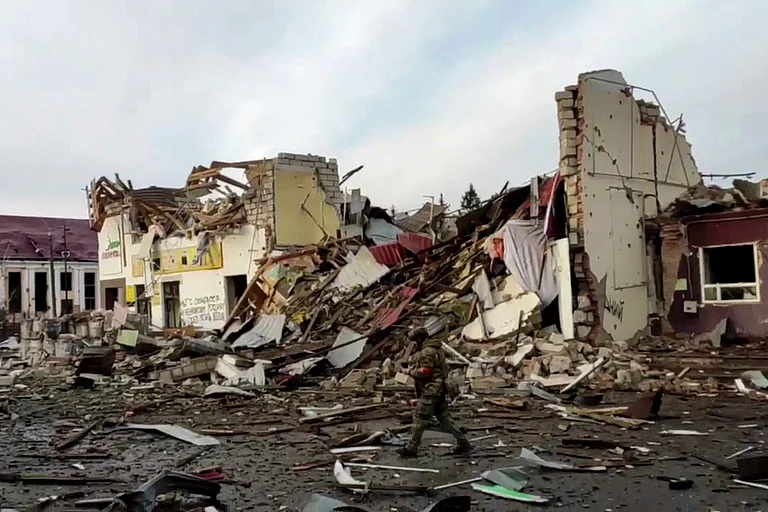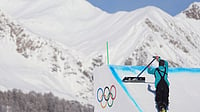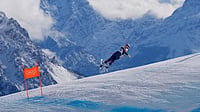Russian forces fired missiles and drones at the Kyiv region and five other areas of Ukraine in a nighttime attack, officials said Wednesday, ahead of several days of intense diplomatic activity around the war that is now in its third year.
Ukraine's air force said it shot down 29 out of 30 air targets, including four cruise missiles, one Kinzhal ballistic missile, and 24 Shahed drones. Several people were injured, authorities said.
Ukraine President Volodymyr Zelenskyy praised the air force's response, calling it a “daily achievement”. He has repeatedly appealed to Ukraine's Western partners to provide more air defence systems, and the United States has agreed to send another Patriot missile system, two US officials said late Tuesday.
How best to support Ukraine's efforts to stop Russia's invasion will be a central issue in international meetings in coming days.
Kyiv's outgunned and outnumbered forces are battling to hold back the bigger Russian army, which is trying to exploit Ukrainian vulnerabilities. Ukraine has been short of troops, ammunition and air defences in recent months as the Kremlin's forces try to cripple the national power supply and punch through the front line in eastern parts of the country.
Ukraine will need to weather the Russian onslaught through the summer, military analysts say, and in the meantime train more soldiers, build fortifications and hope that the provision of Western military aid picks up speed so that in 2025 Kyiv may be able to mount its own offensive.
Leaders of the Group of Seven rich democracies, including US President Joe Biden, are due to gather Thursday in Italy for their annual summit to discuss how to squeeze more money for Ukraine from Russian assets frozen in their countries.
Also Thursday, defence chiefs from the US, Europe and other nations hold their monthly meeting on Ukraine's security needs. US Defence Secretary Lloyd Austin is to host the event in Brussels.
Next weekend, representatives of nearly 90 countries and organisations, half from Europe, are to attend a Swiss-hosted Ukraine peace summit, which will take place without Russia.
Both sides in Europe's biggest conflict since World War II have been reaching out to friendly nations to help keep their armed forces supplied. The war has cost tens of thousands of lives on both sides, including many civilians.
While Ukraine has looked to Western countries, Russian President Vladimir Putin has turned to nations such as Iran and North Korea for help. Unconfirmed reports suggested Putin may soon make a third visit to North Korean leader Kim Jong Un.
Fighting along the roughly 1,000-km (620-mile) front line has in recent months focused on the partly occupied Donetsk region of eastern Ukraine, where Russian forces are trying to reach the key hilltop city of Chasiv Yar and other strategic hubs.
Last month the Kremlin's forces also launched an offensive in the northeastern Kharkiv region, which borders Russia. Putin said he wanted to establish a buffer zone there to prevent Ukrainian cross-border attacks. The offensive drew Ukrainian fighters away from Donetsk. However, Russia's gains have been incremental and costly.
In the Kharkiv region, Russian units have become bogged down in Vovchansk, Ukraine's Commander-in-Chief Oleksandr Syrskyi said Wednesday on the Telegram messaging app.







